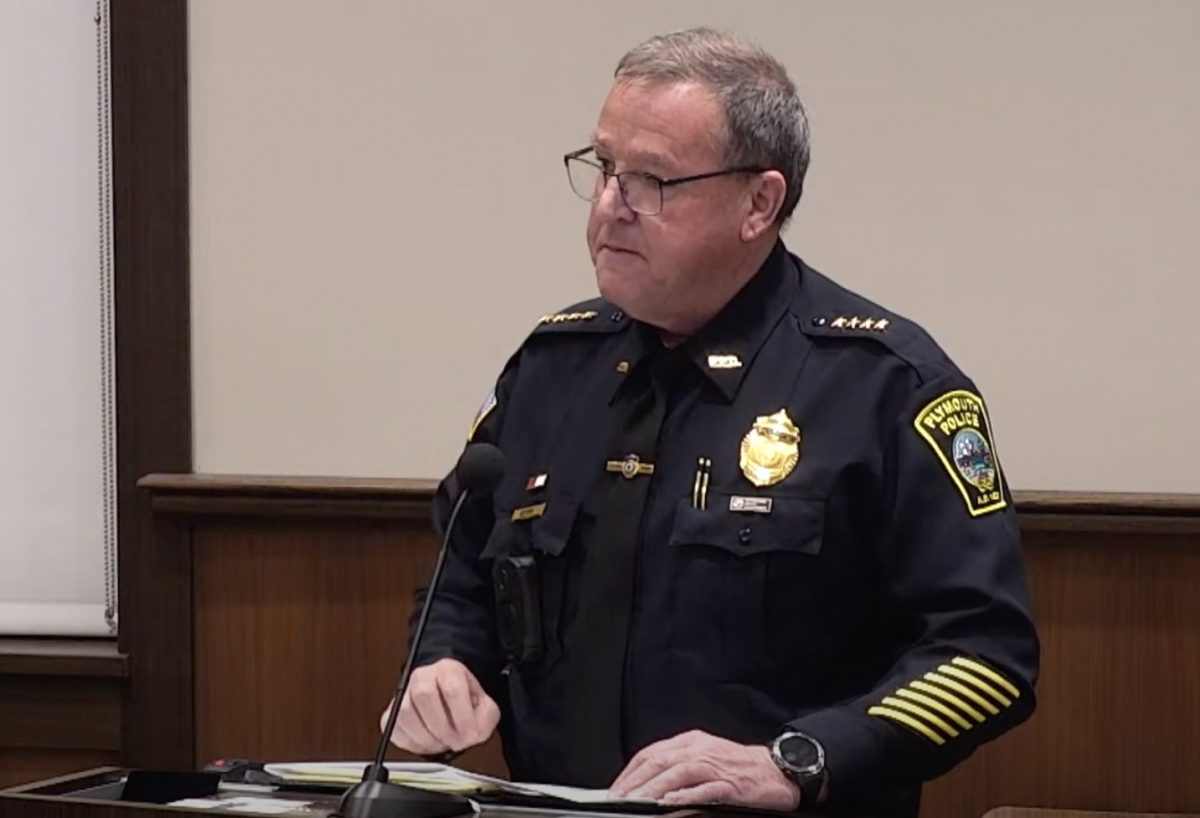It’s been more than 100 years since Plymouth police joined the state civil service system.
Town officials say that’s long enough.
“It’s an entity that has probably run its course,” said Police Chief Dana Flynn. “It hasn’t kept up with the times.”
That’s why officials are looking to opt out of the statewide program, a move they say will make it easier and quicker to recruit and hire new officers. Under civil service, it can take months or years to hire officers, who must take an exam, offered only yearly, and then go through a lengthy application process.
“It’s no secret that my department as well as many around the state are having difficulty hiring police officers,” said Flynn.
The department will be short 11 officers by year’s end, according to Town Manager Derek Brindisi.
“What I and other police chiefs have found is the civil service rules and processes have become an impediment— putting a lot of restrictions on who we can hire, and it’s not always the best candidate, or the best person for the community,” Flynn said.
By law, the town can only exit civil service the same way it entered the program in 1917 — by a vote in an annual election.
During a rare Friday meeting, the Select Board voted unanimously to put the question before voters in the May 17 election. By law, April 12 is the last day the town can place the matter on the ballot. Questions must be approved by the Select Board at least 35 days before a municipal election, Brindisi said.
Both of the town’s police unions, the Plymouth Police Brotherhood and the Plymouth Superior Officers’ Association, approved the plan by large margins this week.
“We haven’t been able to adequately replace retirements, resignations or transfers out of the department for years,” Select Board Vice Chair Kevin Canty said before the vote on Friday afternoon. He said that “fully” staffing the department would help to “better protect Plymouth’s residents.”
In exchange for their support, the unions negotiated increased educational incentive pay for their members.
The added pay will cost the town $115,000 a year starting in July 2026, said Brindisi.
Twenty-eight officers hired since 2012 will get annual raises — 10 percent if they have bachelor’s degree, and 25 percent if they have a master’s degree. They currently collect lower stipends.
Officers hired before 2012 already receive the higher educational benefits.
The unions also approved proposed changes to their members’ work schedules. For a trial period, officers will work four days on, with four days off. They now work four days, with two days off, Flynn said.
The shifts would be 10 hours long, compared with the current eight.
“Our officers are working multiple shifts in a row and forced overtime. It’s adversely affecting their home life,” he said.
Flynn said opting out of civil service will also allow him to hire officers from other towns. Currently, the transfer process is complicated because the department an officer wishes to leave has to agree to the transfer.
Civil service was designed to take politics out of hiring and make decisions merit based. Communities may only recruit candidates based on their scores on a standardized test. The state’s civil service commission also hears appeals from employees and job applicants who were bypassed, laid off, or disciplined.
Flynn said the town and the unions have negotiated an agreement that will replace the civil service rules, addressing hiring, promotions, seniority, layoffs and discipline.
The department will also create an internal process that mimics the existing civil service protections— with officers being given the right to appeal adverse decisions to an arbitrator, Flynn added.
Many Massachusetts communities have already opted out of civil service, according to Michael Bradley, the executive director of the Massachusetts Chiefs of Police Association.
Out of 433 law enforcement agencies in the state, only approximately 120 remain in civil service, he said.
“Agencies outside of civil service typically find they can respond more quickly to vacancies and may tailor their hiring practices to better align with community expectations,” he said in an emailed statement.
“As recruitment and retention continue to be ongoing challenges, many departments view this transition as an opportunity to modernize their operations and improve their competitiveness in attracting talent. Additionally, local control over hiring can facilitate strategic workforce planning and encourage greater collaboration with town leadership,” he said.
The town tried at least twice before to remove the positions of police and fire chief from civil service, in 2008 and 2016. Both attempts failed.
Andrea Estes can be reached at andrea@plymouthindependent.org.

